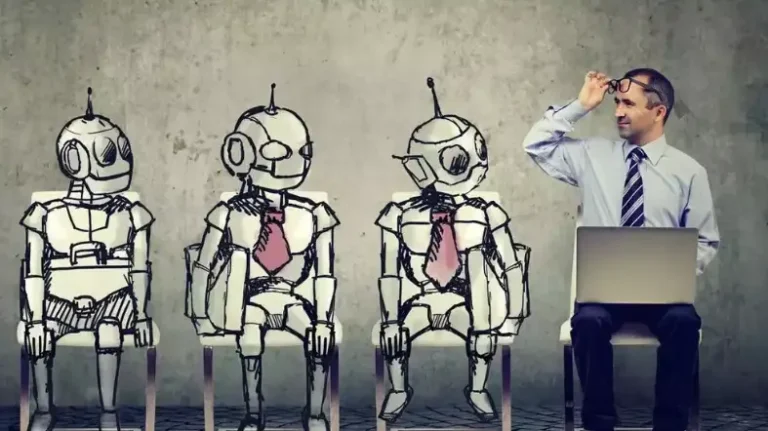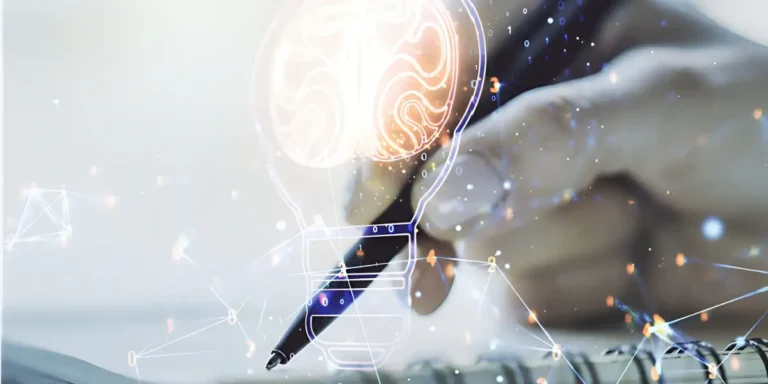With the advance of AI and increased demand for mental health services due to COVID-19, digital technologies are making major inroads into the sector. Although psychologists, counselors, and all those in the “helping professions” work in human domains, AI could change that.
The question is, will AI replace psychologists entirely, or will they work together to help revolutionize mental health care, the impacts of AI in this job industry, the pros, and cons of AI, also required skills to develop, and the future of psychologists in the age of AI?
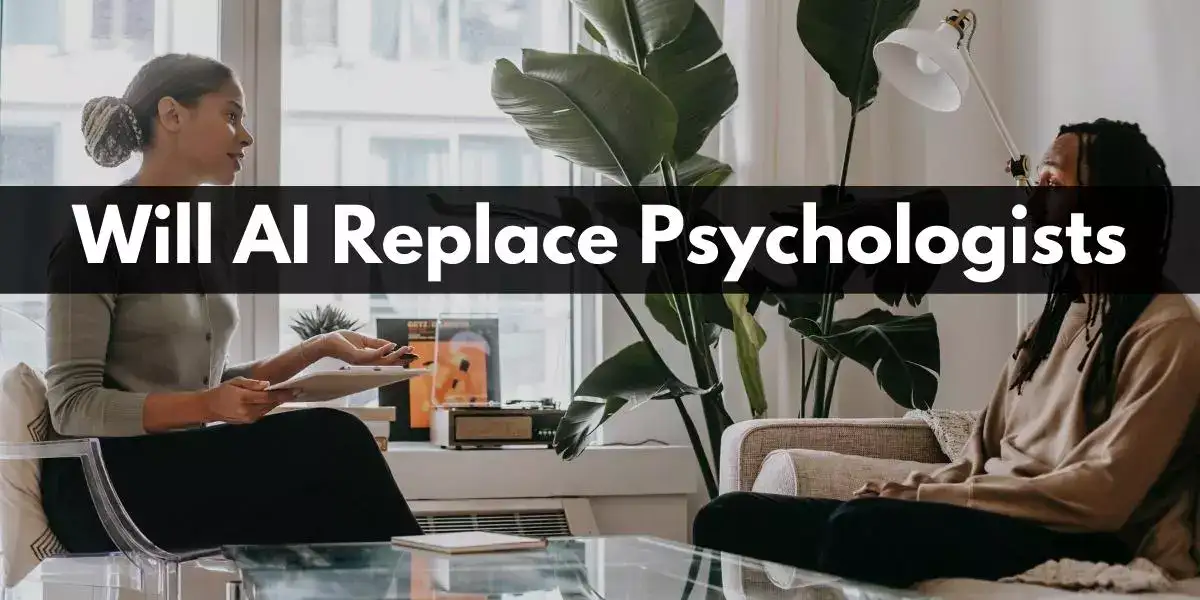
Will AI Replace Psychologists?
No, AI is unlikely to replace psychologists completely. Because mental health is complex, AI needs more emotional intelligence and empathy, which are essential for building a trusting relationship with clients. While AI can automate specific tasks and provide personalized recommendations, human connection, and collaboration are crucial for mental health treatment. AI may complement and enhance the work of psychologists, but it cannot replace them entirely.
What are the Impacts of AI on the Job Market For Psychologists?
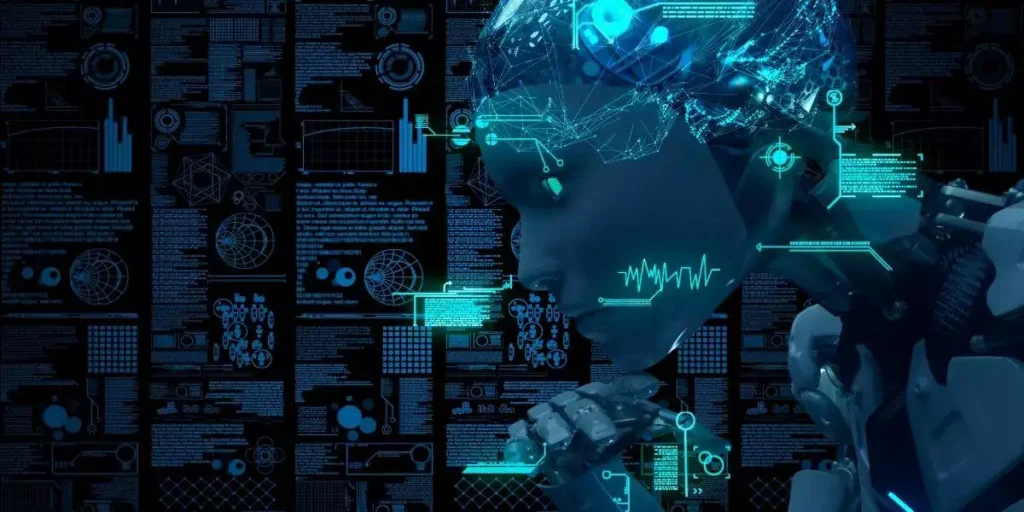
AI and its Impact on the Job Market:
AI is transforming the way we work and is having a big effect on the labor market. Numerous experts believe that AI will both destroy employment and create new ones.
According to a study by Oxford economists, there is a slim 0.43 percent chance that psychology could soon be automated.
Even while AI may not be able to completely automate psychology, it may nonetheless have an influence on the need for psychologists.
The Impact on Mental Health Services:
AI could help address the shortage of mental health professionals in some areas.
AI-powered chatbots and virtual therapists could provide initial assessments and support to patients in areas where access to mental health services is limited.
Automating Usual Work
The automation of ordinary jobs is one of AI’s most important effects on the employment market for psychologists.
Many functions that were formerly carried out by human psychologists, like data input, scheduling, and even diagnosis, may now be automated with the use of artificial intelligence (AI).
This may free up psychologists to work on more difficult and imaginative tasks that call for human judgment and skill.
For instance, chatbots powered by AI may assist psychologists in doing early evaluations and offering patients rudimentary therapy.
This may free up psychologists’ time and resources so they can concentrate on situations that are more difficult and call for their expertise.
Increasing the Precision of Diagnosis
AI may aid psychologists in improving the precision of their diagnoses.
Artificial intelligence (AI) algorithms are able to diagnose patients more quickly and accurately than human psychologists alone by examining a massive quantity of data, including patient history, symptoms, and other pertinent aspects.
AI-powered technologies, for instance, may examine a patient’s language and voice tone to look for indications of sadness, anxiety, or other mental health issues. This enables psychologists to see problems that may otherwise go undetected.
Delivering Personalized Care
Additionally, AI may assist psychologists in treating patients more individually.
AI algorithms may assist psychologists in creating treatment programs that are customized to each patient’s particular requirements and preferences by examining patient data and other pertinent variables.
For instance, AI-driven technologies may evaluate a patient’s reactions to therapy sessions and provide the psychologist advice on how to modify the patient’s treatment plan.
This may assist psychologists in streamlining their therapeutic strategy and enhancing patient results.
Creating New Employment Possibilities
While AI may be displacing some of the everyday jobs that psychologists formerly carried out, it is also opening up new work prospects.
The need for psychologists who can work with and manage AI-powered tools and systems will increase as AI technology develops.
Psychologists may develop and use AI-powered tools to diagnose and treat mental health concerns.
They may also engage in research and development, looking at novel applications of AI to enhance mental health outcomes.
Training and Upskilling
It is crucial to upskill and learn in areas connected to AI if psychologists want to keep ahead of the curve in the employment market.
Using AI-powered tools and systems and comprehending how to evaluate and interpret the data produced by these technologies may be necessary for this.
Case in point, psychologists may enroll in courses in data analysis and machine learning to get the abilities necessary to successfully use AI-powered technologies.
To keep current on the newest trends and advancements in AI, they may also attend seminars and conferences.
What Is The Future Of Psychotherapy With The Rise Of AI?

Virtual therapy
One of the most common ways AI is transforming the psychotherapy industry is via virtual treatment.
Without having to leave their homes, people may obtain mental health care remotely thanks to virtual therapy.
To deliver individualized treatment sessions, virtual therapy platforms employ AI algorithms to assess the user’s speech, tone, and facial expressions.
Virtual reality (VR) technology or video conferencing may be used to provide these sessions.
Diagnoses Assisted by AI
By examining multiple data sources, including medical records, behavioral data, and social media activity, artificial intelligence (AI) may assist mental health experts in making more precise diagnoses.
AI, for instance, may spot trends in a person’s social media use that can be signs of sadness or anxiety.
Plans for therapy that are more individualized may then be created using this information.
Chatbots
Another common method AI is transforming psychotherapy is via chatbots.
Natural language processing (NLP) methods are used by chatbots to mimic human communication.
This enables people to communicate in real-time with a virtual therapist.
Personalized feedback may also be given by chatbots depending on user reactions.
They may be accessed from anywhere in the globe and are open twenty-four hours a day.
Individualized Care
By examining a person’s genetics, medical history, lifestyle, and environmental variables, AI may assist mental health doctors in creating tailored treatment regimens.
Using this data, treatment regimens may be created that are more precisely suited to each patient’s requirements.
AI, for instance, may assist in identifying which pharmaceuticals are most likely to be successful for a certain patient, lowering the likelihood of adverse effects and enhancing the effectiveness of therapy.
What Skills Required A Psychologist Should Update to Hold Their Job in the Age of AI?

Becoming familiar with AI and machine learning
It is crucial for psychologists to have a fundamental grasp of AI and machine learning.
Understanding how these technologies operate and how they might be used to enhance patient care is crucial since they are being utilized more and more in healthcare settings.
Psychologists may use AI to evaluate data more quickly, see trends, and forecast patient outcomes more accurately.
Analysis and Interpretation of Data
Because AI and machine learning are being used more and more, psychologists need to be adept at analyzing and interpreting data.
Regression analysis, factor analysis, and cluster analysis are just a few examples of the statistical methods that psychologists should be able to gather and evaluate data utilizing.
Additionally, they must be able to explain and convey to patients and other medical professionals the findings of their investigation.
Collaboration Techniques
In the AI era, psychologists need to be very collaborative. They should be able to collaborate well with physicians, nurses, and data scientists, among other healthcare professionals.
In order to include patients and their families in the therapeutic process, psychologists must be able to interact with them successfully.
Technology and Digital Competencies
Psychologists nowadays need to be well-versed in technology and digital tools due to AI. They must be knowledgeable in a variety of technology, such as telemedicine, digital assessment tools, and electronic health records.
In order to interact with patients and other healthcare personnel, they should be able to utilize digital technologies.
Lifelong Education
Psychologists must be devoted to lifelong learning as AI and machine learning technologies advance.
They need to be abreast of new developments in their field’s science and technology.
To guarantee that they can provide their patients with the finest treatment possible, psychologists should also be eager to pick up new skills and methods.
Moral and legal issues to consider
When using AI and machine learning, psychologists must be conscious of ethical and legal issues.
They should be aware of any possible biases in these technologies and take care to avoid unintentionally favoring certain patients over others.
When employing these technologies, companies need also to make sure that they are abiding by all applicable rules and regulations.
Develop Empathy
While AI has the potential to improve patient care, it can never replace the human touch.
To be effective in the age of AI, psychologists must develop empathy. Empathy enables them to understand their patients’ emotions and build strong interpersonal connections.
By developing empathy, psychologists can provide a more personalized and humanized experience for their patients.
Develop Critical Thinking Skills
AI is not a replacement for human judgment. Psychologists must develop critical thinking skills to make informed decisions about patient care. They must be able to analyze data, identify patterns, and draw conclusions.
By developing critical thinking skills, psychologists can ensure that they are providing the best possible care to their patients.
What are the advantages of AI in Psychology?
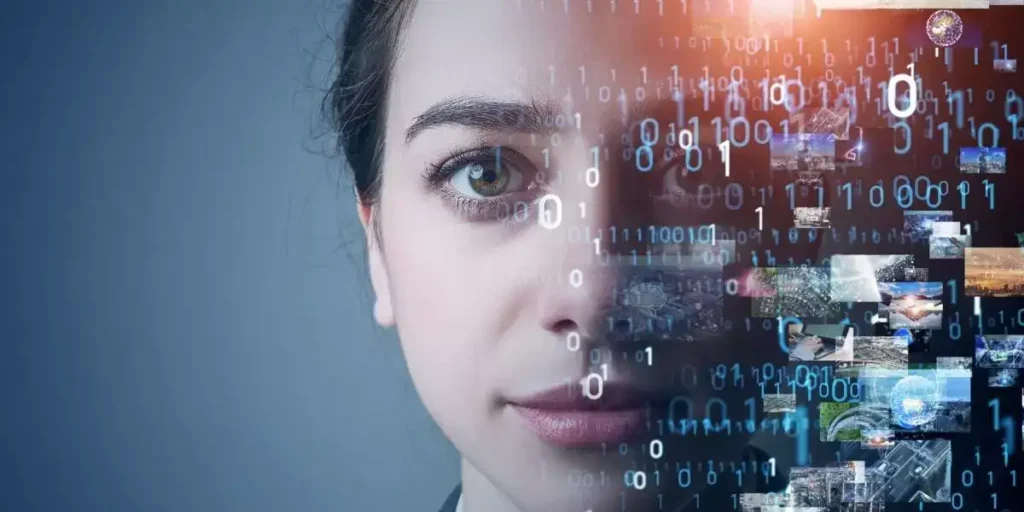
Early Detection
The potential of AI to identify mental diseases at an early stage is one of the major advantages of technology for mental health treatment.
In order to spot possible mental health issues, AI-powered mental health applications may gather information on a person’s mood, behavior, and social interactions.
For instance, an AI-powered chatbot may examine a person’s speech patterns and look for indications of sadness or anxiety using natural language processing.
Social media activity may also be examined using AI algorithms to look for possible indicators of suicidal thoughts or other mental health problems.
Rapid intervention and treatment may be made possible by early identification, which can stop the problem from becoming worse.
Identification of Mental Health Disorder Risk Factors
Through the analysis of vast databases of genetic and environmental elements, AI has the ability to pinpoint risk factors for mental health illnesses.
This may assist researchers in identifying possible risk factors for illnesses including bipolar disorder, anxiety, and depression.
Improved Diagnosis and Treatment of Mental Health Conditions
AI can assist in the diagnosis and treatment of mental health conditions by analyzing large datasets of symptoms and treatment outcomes.
This can help healthcare professionals to identify the most effective treatments for individual patients.
AI can also be used to develop personalized cognitive behavioral therapy (CBT) programs that are tailored to individual patient needs.
Improved Research and Development of New Therapies
AI can assist in the research and development of new therapies by identifying patterns and correlations in large datasets of patient data.
This can help researchers to identify potential new treatment options for a range of mental health conditions.
Increased Efficiency and Accessibility of Mental Health Care
AI can increase the efficiency and accessibility of mental health care by providing patients with 24/7 access to mental health support.
Chatbots, such as Woebot, can replicate conversations that a patient might have with their therapist.
This can help to reduce waiting times for patients and increase access to mental health support in remote or underserved areas.
Consistency and Accuracy in Diagnosis and Treatment
AI can provide consistent and accurate diagnosis and treatment of mental health conditions by analyzing large datasets of patient data.
AI can detect patterns that may not be apparent to human healthcare professionals, increasing the accuracy of diagnosis and treatment outcomes.
What Are The Limitations Of Using AI In Psychology?

Lack of emotional intelligence
AI systems lack emotional intelligence. They cannot empathize with patients or understand the nuances of human emotions.
For example, an AI therapist may be able to identify patterns in a patient’s behavior but may not be able to understand the underlying reasons for those patterns.
This can lead to misdiagnosis and inappropriate treatment recommendations.
Bias in AI algorithms
AI algorithms are only as good as the data they are trained on. If the data is biased, the AI algorithm will also be biased. This can lead to inaccurate predictions and recommendations.
For example, if an AI system is trained on data that is biased against a particular race or gender, it may make incorrect diagnoses and treatment recommendations for patients belonging to that group.
The limited scope of AI systems
AI systems are limited in their scope. They cannot handle complex situations that require human intuition and judgment.
For example, an AI system may be able to diagnose depression based on a patient’s symptoms, but it may not be able to identify the underlying social or environmental factors that are contributing to the patient’s depression.
Lack of transparency
AI systems are often black boxes. It is difficult to understand how they arrive at their decisions or recommendations.
This lack of transparency can make it difficult for clinicians and patients to trust AI systems.
For example, if an AI system recommends a particular treatment for a patient, it may be difficult for the clinician or patient to understand why that particular treatment was recommended.
Ethical concerns
AI raises several ethical concerns in psychology. For example, who is responsible if an AI system makes a wrong diagnosis or treatment recommendation?
How can we ensure that AI systems are not used to discriminate against certain groups of patients?
How can we ensure that AI systems respect patient privacy and confidentiality?
FAQs
Will AI Change The Way We Approach And Treat Mental Illness?
AI has the potential to revolutionize mental healthcare by improving diagnosis, treatment, and accessibility. With the use of chatbots and virtual therapists, AI can provide round-the-clock support for those in need. However, caution must be taken to ensure ethical and responsible use.
Can AI Replace Psychologists Entirely?
No, AI may become a useful tool for psychologists, but it cannot replace the role of human psychologists completely. There are certain skills and abilities, such as empathy, that AI does not possess and are essential for psychologists to effectively treat their clients.
Can AI Provide Personalized Therapy To Clients?
While AI can analyze data and provide insights into certain patterns, it cannot replace the personalized care that a human psychologist can provide. Clients require a tailored approach to their therapy, and human interaction is necessary for effective treatment.
Will AI Make Psychologists Redundant?
No, AI will not make psychologists redundant. While AI may become a useful tool for psychologists, it cannot replace the essential role of human psychologists in providing personalized care and treatment to clients.
Is There A Risk Of AI Perpetuating Biases In Psychology?
Yes, there is a risk of AI perpetuating biases in psychology, especially if the data used to train the AI contains biases.
It is important to continually evaluate and update AI models to ensure that they are not perpetuating biases in their analysis.
Conclusion
Although AI may prove to be a useful tool in the study of psychology, it is doubtful that it will ever totally replace human psychologists.
A skilled psychologist’s personal touch and empathy are still essential components in treating mental health problems.
AI may, however, be used to support and enhance the work of psychologists, assisting them in developing more precise diagnoses and individualized treatment strategies.
In the end, it’s probable that using both AI and human knowledge will be the most efficient method to provide high-quality mental healthcare.


